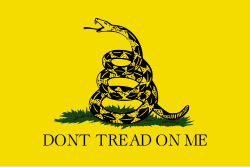
Originalism is a legal theory in the United States which bases constitutional, judicial, and statutory interpretation of text on the original understanding at the time of its adoption. Originalism consists of a family of different theories of constitutional interpretation and can refer to original intent or original meaning. [1] Critics of originalism often turn to the competing concept of the Living Constitution, which asserts that a constitution should evolve and be interpreted based on the context of current times. [2] [3] Originalism should not be confused with strict constructionism. [4] It should also not be confused with textualism. [5]
Contents
- History
- Modern
- Types
- Original intent
- Original public understanding
- Original law
- Debate
- Critics
- Related positions
- International law and originalism
- Strict constructionism
- Declarationism
- See also
- References
- References 2
- Further reading
- External links
Although some scholars argue that originalism has always been a part of American law, [6] contemporary originalism emerged during the 1980s and greatly influenced American legal culture, practice, and academia, [7] Over time, originalism became more popular and gained mainstream acceptance by 2020. [8]
Originalism was championed most prominently by Justice Antonin Scalia, whose opinion in District of Columbia v. Heller (2008) became a defining—and divisive—statement of originalist reasoning. Critics, including many professional historians, have argued that Heller relied on selective or flawed historical analysis. Despite such criticism, originalism has grown in prominence since Scalia’s tenure, especially with the appointments of Justices Neil Gorsuch, Brett Kavanaugh, and Amy Coney Barrett during the Trump administration. The philosophy played a central role in major rulings such as Dobbs v. Jackson Women's Health Organization (2022), which overturned Roe v. Wade . In response, some scholars and jurists, including Justice Ketanji Brown Jackson, have advanced ideas of “progressive originalism.” Meanwhile, critics contend that the Court’s reliance on history has become inconsistent and politically driven, with Justice Sonia Sotomayor remarking that “history matters to this Court only when it is convenient.” [9]

